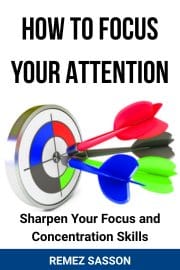
The notification chimes relentlessly. Another deadline reminder. Another essay due. Another sleepless night stretches ahead as you calculate whether it’s physically possible to research, write, and edit a quality paper in the remaining hours.
Your coffee has gone cold, your eyes burn from screen glare, and somewhere in the back of your mind, a voice whispers the question every overwhelmed student has considered: “Can’t someone just help me get this done?”
The modern student’s relationship with time has become a constant struggle against seemingly insurmountable odds. Between course loads that seem designed for machines rather than humans, part-time jobs that pay for tomorrow’s education, and personal responsibilities that can’t be postponed, finding time for thoughtful academic work feels like solving an unsolvable equation.
When deadlines converge and quality matters, searching for “do my essay for me” becomes less about academic shortcuts and more about a survival strategy in an educational system that demands superhuman time management skills.
The Time Poverty Crisis in Modern Education
Today’s students face a paradox that previous generations couldn’t imagine: access to infinite information but insufficient time to process it meaningfully.
Universities have responded to global competition by cramming more content into semesters, professors assign readings that would challenge full-time researchers, and students find themselves trapped in a cycle of surface-level engagement with material that deserves deeper exploration.
Students who genuinely want to learn often find themselves too busy completing assignments and struggling to understand the subjects they’re studying.
The pressure to maintain high GPAs for competitive graduate programs or job markets transforms education from intellectual exploration into academic survival mode.
The Strategic Value of Time Optimization
Recognizing time as your most precious academic resource fundamentally changes how you approach educational challenges. Every hour spent struggling inefficiently with assignments is an hour stolen from deeper learning, meaningful relationships, and personal well-being.
Strategic time optimization isn’t about cutting corners- it’s about maximizing the educational value of your limited hours.
Professional assignment help functions as a time multiplier, converting overwhelming workloads into manageable learning opportunities.
Instead of spending twelve hours researching and writing a single paper, you might spend four hours working with an expert to understand research methodologies, argument structure, and writing techniques that improve every future assignment.
This approach mirrors how successful professionals operate in their careers. Executives don’t personally handle every task; they delegate strategically while maintaining oversight and learning from expert execution.
Weekly guidance, stories, insights, and simple practices to expand awareness, quiet the busy mind, and break free from autopilot.
👉 Read a Free Inner Awakening lesson
Students who apply this principle to their academic lives often discover they can achieve better results with less stress and more time for genuine intellectual engagement.
Beyond Task Completion: Learning Through Expert Modeling
The most transformative aspect of time-saving assignment help isn’t the completed work; it’s the educational modeling that occurs throughout the process.
When you collaborate with expert writers and researchers, you observe professional-level thinking in action. You see how seasoned academics approach complex topics, structure compelling arguments, and synthesize information from multiple sources.
This observational learning accelerates skill development far beyond what traditional classroom instruction typically provides. Many courses teach what to think about, but rarely demonstrate how experts actually think through complex problems.
Professional assignment help bridges this gap, providing real-time examples of critical thinking, analytical reasoning, and persuasive communication.
The benefits extend across disciplines and persist long after graduation. Students who learn from expert modeling develop stronger research instincts, clearer writing voices, and more sophisticated analytical capabilities. These meta-skills become career assets that compound in value throughout professional life.
The Art of Strategic Academic Collaboration
Effective time-saving assignment help requires strategic thinking about when and how to seek support. The goal isn’t to outsource all intellectual work but to optimize your learning efficiency by focusing personal time on areas where your direct engagement produces maximum educational value.
Consider collaborating with experts for assignments that teach process-oriented skills you’ll use repeatedly. Research papers, analytical essays, and case study analyses provide templates for approaching similar challenges throughout your academic career.
By working with professionals on these foundational assignments, you develop frameworks for independent success on future projects.
Smart students also use assignment help strategically during particularly overwhelming periods, midterms, finals, or weeks when multiple major projects converge.
Rather than sacrificing quality across all assignments or compromising their health through sleep deprivation, they seek targeted support that maintains academic standards while preserving their capacity for sustained learning.
The key elements of strategic academic collaboration include:
- Selective engagement that focuses professional help on assignments with maximum learning transfer potential, ensuring your investment yields long-term skill development
- Active participation in the collaboration process, asking questions about methodology and reasoning rather than passively receiving completed work
- Knowledge synthesis that connects expert approaches to your existing understanding, building bridges between professional techniques and your developing expertise
- Future application planning that identifies how current collaboration can improve your independent performance on similar assignments
- Quality assessment skills that help you recognize excellent work and understand what makes it effective, raising your standards for future projects
The Ripple Effects of Time Liberation
When assignment pressure decreases, remarkable transformations occur across multiple areas of student life. Sleep patterns normalize, allowing for better cognitive function and emotional regulation.
Stress levels decrease, leading to improved physical health and mental clarity. Social relationships strengthen when you’re not constantly canceling plans due to academic emergencies.
Perhaps most importantly, you rediscover your natural curiosity about learning. When you’re not perpetually behind on deadlines, you can engage more deeply with subjects that genuinely interest you.
You have time for the kind of intellectual exploration that originally motivated your educational journey.
This psychological shift creates an upward spiral. Better rest and lower stress improve academic performance. Improved performance builds confidence. Increased confidence encourages deeper engagement with challenging material. Deeper engagement leads to genuine learning and intellectual satisfaction.
Your Path to Sustainable Academic Excellence
The transformation from overwhelmed student to strategic learner begins with recognizing that your time is precious and finite. By investing in expert collaboration that amplifies your learning efficiency, you create sustainable conditions for academic excellence while maintaining the personal well-being necessary for long-term success.
Your future self, the one with both academic achievements and the energy to enjoy them, will thank you for making the strategic choice to optimize your time rather than simply enduring endless academic pressure.
The question isn’t whether you can afford professional assignment help; it’s whether you can afford to continue operating at unsustainable levels when better alternatives exist.

